Voices from the Sylff Community
Apr 17, 2023
Powering Up: How Electric Buses are Paving the Way for a Greener Tomorrow
Bus fleets are increasingly transitioning from diesel to electric. Jônatas Augusto Manzolli, a 2019 Sylff fellow who conducts research on “Adaptive Energy Management Strategies for Electric Bus Fleets” with a Sylff Research Grant (SRG), discusses the challenges of electric bus fleets and ways to mitigate them, as well as their possibilities for a more sustainable future.
* * *
“The answer to these problems is not less transport—it is sustainable transport. We need more systems that are environmentally friendly, affordable, and accessible.” —Ban Ki-Moon, former UN secretary-general, when asked about transportation solutions for the future
The era of diesel-spewing buses congesting our streets is a thing of the past. The future of public transportation lies in electric buses, which are no longer just a pipe dream. Reports indicate that by 2040, most buses on the road could be electric.[1] But transitioning to more sustainable and efficient buses is not an overnight process. It poses significant challenges that must be overcome to achieve a sustainable future.
As a researcher, I focus on enhancing the implementation of electric buses in our communities to create healthier urban environments for everyone. In this article, I will address the four major obstacles in the electrification process of bus transit and share the strategies I am implementing to mitigate them.
Grid Resilience
To truly grasp the magnitude of integrating large fleets of buses into the grid, we can examine the city of Shenzhen in China as an example. Shenzhen phased out all of its diesel-bus fleets and replaced them with electric ones, which has resulted in a massive demand for charging energy.[2] The new fleet requires 2,000 megawatt hours, equivalent to the energy needed to power 1.2 million homes for one hour. This staggering figure underscores the urgent need for improved planning and operation of electric bus fleets to prevent grid disruptions. Upgrading the grid or adopting smart charging techniques are viable solutions, but decision-makers must explore all alternatives to establish dependable and secure electric bus networks.
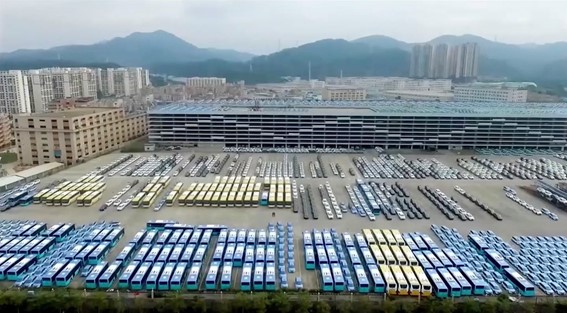
An electric bus fleet in Shenzhen, China. (Photo: Green Energy Futures, CC BY-NC-SA 2.0, via Flickr)
Electricity Market
The transition from diesel to electric bus fleets for public transportation operators presents challenges and opportunities, particularly regarding the electricity market. By synchronizing charging times with bus operation schedules, smart charging techniques can potentially exploit better electricity prices during the day, reducing operational costs and improving efficiency. Furthermore, electric bus fleets can act as virtual power plants and provide ancillary services to the grid. A prime example is the BUS2GRID project launched in London, where 28 state-of-the-art double-decker buses are equipped with technology to generate over 1 megawatt of power for the grid.[3] But for buses to become reliable grid auxiliaries in the future, their operation must meet the energy requirements of the grid.
Operation under Uncertainty
Waiting for a delayed bus can be frustrating. This unfortunate situation happens due to the stochastic nature of bus fleet operations—different driving conditions, uncertain traffic, and unpredictable weather. While this can pose challenges for diesel fleets, it becomes even more complex when dealing with electric bus fleets. The stochastic behavior of electric buses can lead to unpredictable charging patterns and unexpected disruptions in operation, causing grid issues and buses running out of energy mid-route. To tackle these issues, it is essential to develop robust operation and planning systems using advanced planning tools, control algorithms, and real-time data analysis. Accurately forecasting energy needs, reducing operational costs, and ensuring a reliable and efficient electric bus service can be achieved by implementing these systems while minimizing the risk of unforeseen disruptions.
Battery Degradation
Battery degradation is a significant challenge when implementing electric bus fleets, with electric buses having a lifespan of only 10 to 12 years due to battery aging.[4] Charging strategies must consider such factors as charging speed, frequency, and temperature to minimize battery aging, while public transportation operators must assess the impact of ancillary services on battery degradation. Developing strategies to mitigate battery degradation is crucial for decision-makers to ensure the reliability and longevity of their electric bus fleets.
Solutions
At INESC Coimbra of the University of Coimbra (Portugal), we are currently developing an intelligent charging model for electric bus fleets that aims to reduce operational costs by 30–40% while simultaneously increasing the battery life cycle of the buses.[5] Our model considers vehicle-to-grid (V2G) technology for energy trading and battery degradation, allowing for a comprehensive analysis of the batteries’ lifespan and ensuring an extended battery life cycle. By optimizing the charging process, we can significantly reduce operational costs.
Through sensitivity analysis tests, we have discovered that energy trading is not currently advantageous but could become economically profitable soon. To improve battery lifespan and the operation time of bus fleets in cities, we conducted laboratory tests at the e-TESC Laboratory, University of Sherbrooke (Canada), to study the battery degradation behavior of buses under shallow temperatures. We have published a paper detailing our preliminary results in this regard.[6]
Our ultimate goal is to provide a tool to assist public transportation operators in making informed decisions regarding the electrification of their bus systems. Through our research, we hope to drive the transition toward a more sustainable and environmentally friendly future.
Final Remarks
In summary, adopting electric buses in our communities is a significant milestone in our journey toward sustainability. However, we must acknowledge that this transition is not without its hurdles, and we must overcome them by employing cutting-edge technologies and inventive strategies. By using smart charging techniques, for instance, we can optimize the operational efficiency of electric bus fleets and reduce operating costs while ensuring that charging patterns are predictable and stable, thereby minimizing disruptions to the grid. We can also leverage V2G technology to trade energy with the grid and extend the battery life cycle of buses. Furthermore, we must invest in research and development efforts, such as those that we are undertaking at INESC Coimbra and the e-TESC Laboratory, to improve battery degradation behavior under extreme conditions and ensure that electric buses have a long and sustainable lifespan. Ultimately, our goal should be to provide public transportation operators with decision-making tools and resources to electrify their bus systems successfully and move toward a greener and more eco-friendly future.
[1] E. Mulholland and F. Rodríguez, “The Rapid Deployment of Zero-Emission Buses in Europe,” The International Council on Clean Transportation, September 19, 2022, https://theicct.org/publication/the-rapid-deployment-of-zero-emission-buses-in-europe/.
[2] B. Crothers, “This Chinese City Has 16,000 Electric Buses and 22,000 Electric Taxis. ” Forbes, February 14, 2021, https://www.forbes.com/sites/brookecrothers/2021/02/14/this-chinese-city-has-16000-electric-buses-and-22000-electric-taxis/.
[3] SSE Energy Solutions, “BUS2GRID Project: Smart Electrification for Electric Bus Fleets,” https://www.sseenergysolutions.co.uk/file/bus2grid-brochure.
[4] T. McGrath, L. Blades, J. Early, and A. Harris, “UK Battery Electric Bus Operation: Examining Battery Degradation, Carbon Emissions and Cost,” Transportation Research Part D: Transport and Environment 109 (August 2022), https://doi.org/10.1016/j.trd.2022.103373.
[5] J. A. Manzolli, J. P. F. Trovão, and C. Henggeler Antunes, “Electric Bus Coordinated Charging Strategy Considering V2G and Battery Degradation,” Energy 254, Part A (September 2022), https://doi.org/10.1016/j.energy.2022.124252.
[6] Manzolli, Trovão, and Henggeler Antunes, “Optimisation of an Electric Bus Charging Strategy Considering a Semi-Empirical Battery Degradation Model and Weather Conditions,” 2022 11th International Conference on Control, Automation and Information Sciences (ICCAIS), Hanoi, Vietnam (2022): 298–303, https://doi.org/10.1109/ICCAIS56082.2022.9990180.

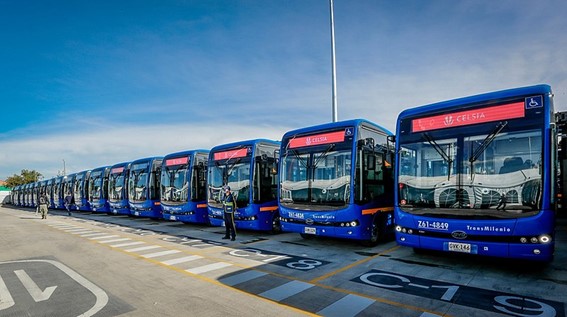
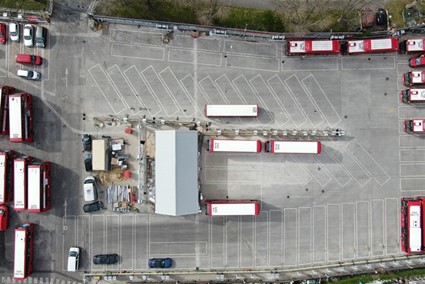
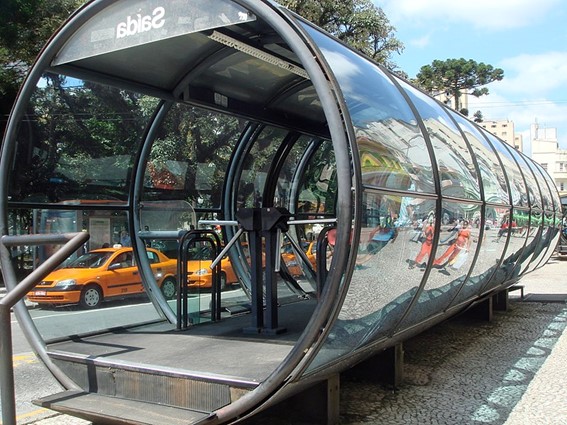
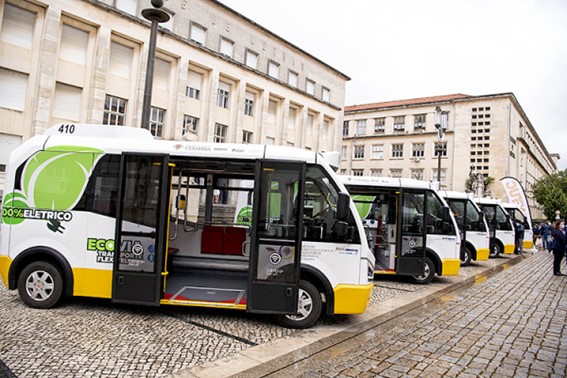
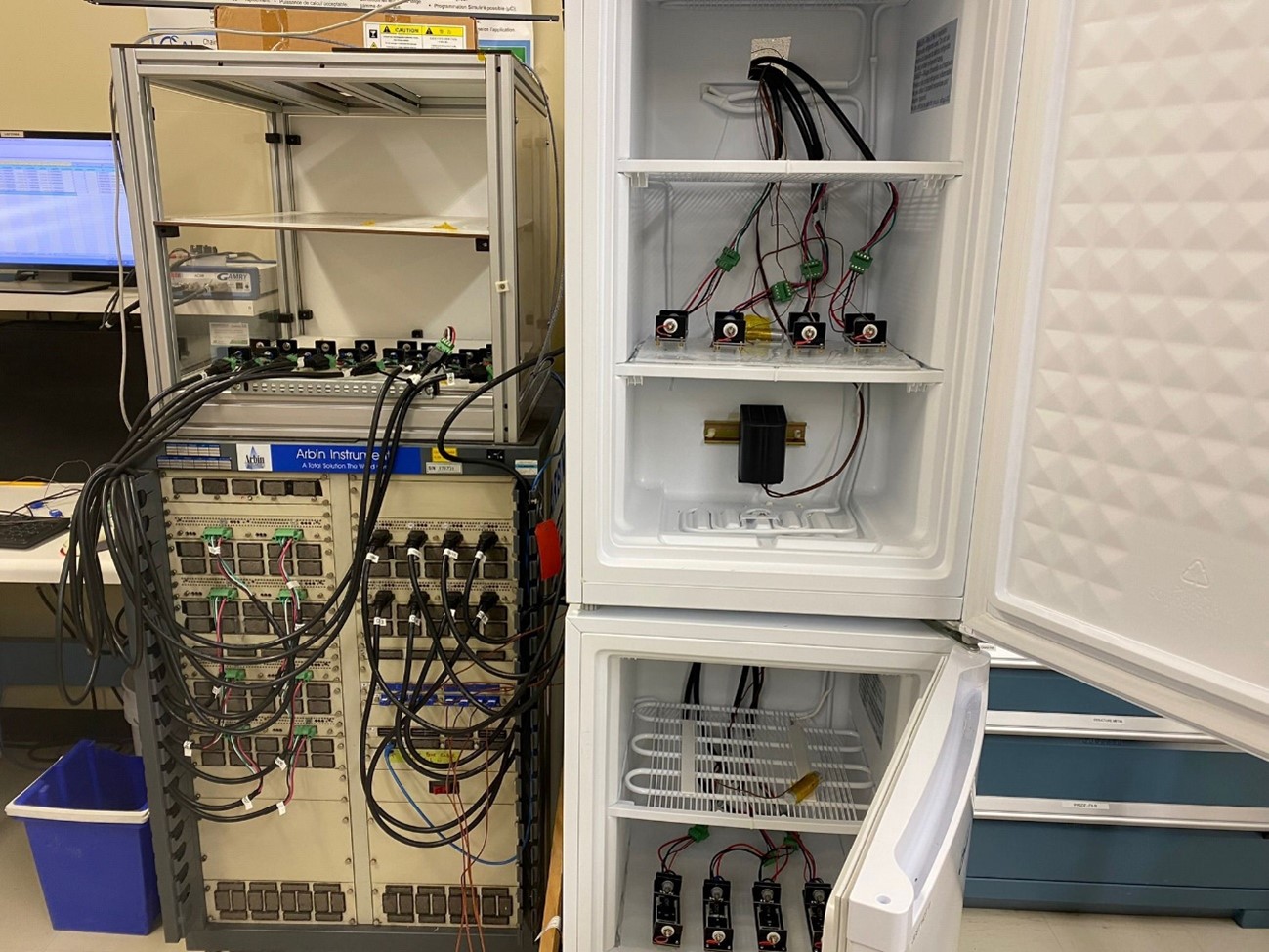
Comments
Other
This is such a refreshing write up and a case study which can be used for citing and scale up for other countries. This is extremely helpful as it talks about challenges of making fast transition. Thanks for sharing. -Joyashree Roy-